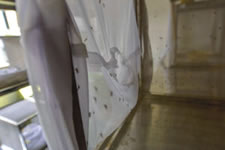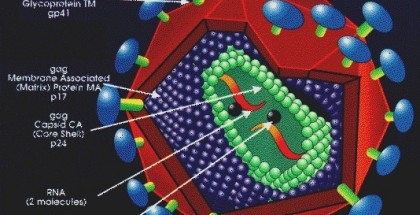Using bacteria to stop malaria
konknaijaboy | On 13, May 2013
Mosquitoes are deadly efficient disease transmitters. Research conducted at Michigan State University, however, demonstrates that they also can be part of the solution for diseases such as malaria.
A study in the current issue of Science shows that the transmission of malaria via mosquitoes to humans can be interrupted by using a strain of the bacteria Wolbachia in the insects. In a sense, Wolbachia would act as a vaccine of sorts for mosquitoes that would protect them from malaria parasites. Treating mosquitoes would prevent them from transmitting malaria to humans, a disease that in 2010 affected 219 million people and caused an estimated 660,000 deaths.
“Wolbachia-based malaria control strategy has been discussed for the last two decades,” said Zhiyong Xi, MSU assistant professor of microbiology and molecular genetics. “Our work is the first to demonstrate Wolbachia can be stably established in a key malaria vector, the mosquito species Anopheles stephensi, which opens the door to use Wolbachia for malaria control.”
First, Xi’s team successfully demonstrated how Wolbachia can be carried by this malaria mosquito vector and how the insects can spread the bacteria throughout the entire mosquito population. Secondly, researchers showed that the bacteria can prevent those mosquitoes from transmitting malaria parasites to humans.
“We developed the mosquito line carrying a stable Wolbachia infection,” Xi said. “We then seeded them into uninfected populations and repeatedly produced a population of predominantly Wolbachia-infected mosquitoes.”
The basis for Xi’s latest findings is connected to the success of his work using Wolbachia to halt Dengue fever. For this research, Xi focused on the mosquito species Aedes albopictus and Aedes aegypti. This work helped launch a global effort to develop Wolbachia-based strategies to eliminate dengue and other diseases.
The key to the malaria research was identifying the correct species of Wolbachia — wAlbB — and then injecting it into mosquito embryos. Out of the thousands of embryos injected by research associate Guowu Bian, one developed into a female that carried Wolbachia.
• Source: Science Daily















